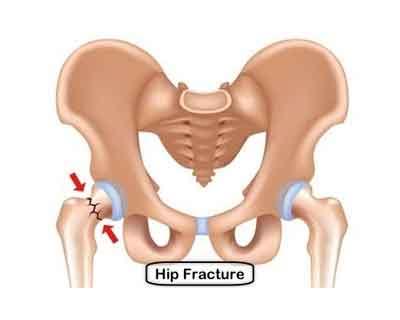- Home
- Editorial
- News
- Practice Guidelines
- Anesthesiology Guidelines
- Cancer Guidelines
- Cardiac Sciences Guidelines
- Critical Care Guidelines
- Dentistry Guidelines
- Dermatology Guidelines
- Diabetes and Endo Guidelines
- Diagnostics Guidelines
- ENT Guidelines
- Featured Practice Guidelines
- Gastroenterology Guidelines
- Geriatrics Guidelines
- Medicine Guidelines
- Nephrology Guidelines
- Neurosciences Guidelines
- Obs and Gynae Guidelines
- Ophthalmology Guidelines
- Orthopaedics Guidelines
- Paediatrics Guidelines
- Psychiatry Guidelines
- Pulmonology Guidelines
- Radiology Guidelines
- Surgery Guidelines
- Urology Guidelines
Assessment of bone density and fracture history can predict long-term fracture risk

Factors such as low bone density and previous fractures are commonly used to predict an individual's risk of experiencing a fracture over the next 10 years. A new analysis has found that a single bone density measurement and an assessment of fracture history in postmenopausal women can predict fracture risk over a much longer period, up to 25 years.
The findings come from an analysis of data from the Study of Osteoporotic Fractures that assessed bone mineral density and risk factors in 7,959 older women from 1987 to 1989. Follow-up for fractures continued for 25 years for hip fracture, and for 20 years for any non-vertebral fracture.
"By following this cohort of older women for so long, we show directly that lifetime risk of hip fracture in community-dwelling women over age 75 is extremely high," wrote the authors of the Journal of Bone and Mineral Research study report. "These results strongly support the value of risk assessment and consideration of treatment even in the oldest, highest risk women."
Read the full article click on the link : http://onlinelibrary.wiley.com/doi/10.1002/jbmr.v32.6/issuetoc
The findings come from an analysis of data from the Study of Osteoporotic Fractures that assessed bone mineral density and risk factors in 7,959 older women from 1987 to 1989. Follow-up for fractures continued for 25 years for hip fracture, and for 20 years for any non-vertebral fracture.
"By following this cohort of older women for so long, we show directly that lifetime risk of hip fracture in community-dwelling women over age 75 is extremely high," wrote the authors of the Journal of Bone and Mineral Research study report. "These results strongly support the value of risk assessment and consideration of treatment even in the oldest, highest risk women."
Read the full article click on the link : http://onlinelibrary.wiley.com/doi/10.1002/jbmr.v32.6/issuetoc
Bone and Mineral Researchbone densityfracturefracture riskHip fractureJournal Bone and Mineral ResearchJournal of Bone and Mineral ResearchOsteoporotic Fractures
Next Story
NO DATA FOUND

Disclaimer: This site is primarily intended for healthcare professionals. Any content/information on this website does not replace the advice of medical and/or health professionals and should not be construed as medical/diagnostic advice/endorsement or prescription. Use of this site is subject to our terms of use, privacy policy, advertisement policy. © 2020 Minerva Medical Treatment Pvt Ltd